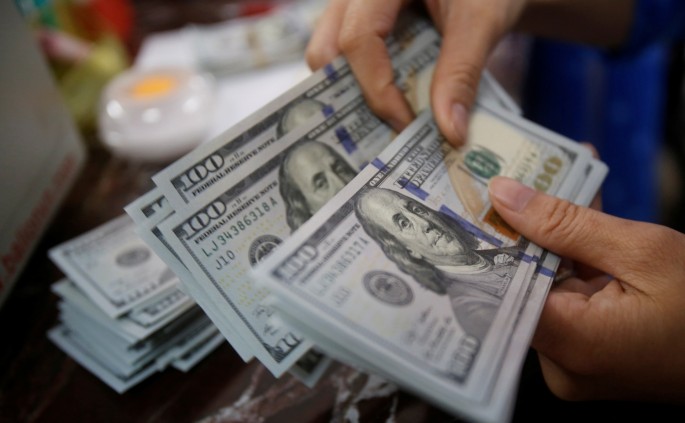Investors in U.S. interest rate options are paying for trades that benefit from a much earlier-than-expected monetary tightening by the Federal Reserve to fight off stubbornly high inflation, including multiple hikes from next year until 2023.
Those bets have pushed volatility higher on U.S. swaptions, or options on interest rate swaps which give the buyer the right to enter a swap contract in the future at a pre-agreed price.
Swaps, a measure of the cost of exchanging fixed rate cash flows for floating rate ones over a specific period, are often used by investors to express views on where borrowing costs will go.
The one-year forward rate on U.S. two-year swaps, that part of the curve most sensitive to rate hike expectations, on Thursday was implying a rate of 1.27% by October 2022, compared with the spot rate of 0.639%.
For a graphic on US swap rates:
https://fingfx.thomsonreuters.com/gfx/mkt/zgpomrxgbpd/US%20swap%20rates1.PNG
That forward rate suggests a more than 60 basis-point sell-off in U.S. 2-year swaps that pushes their rates higher, an ambitious outlook that suggested two rate hikes next year have been factored in, consistent with market expectations, analysts said.
"The selloff in the front end is priced in very mechanically with the Fed," said Bruno Braizinha, senior rates strategist, at BofA Securities in New York. "What the (swap rate) selloff implies is a series of hikes that are getting front-loaded."
Futures on the fed funds rate, which track short-term rate expectations, have fully priced in a quarter-point tightening by July 2022, factoring in another rate increase by December.
Surging inflation expectations based on key bond indicators as well as higher oil prices have stoked what some analysts believed to be an ambitious rate outlook.
The U.S. 5-year Treasury Inflation Protected Securities breakeven inflation rate, which reflects market-based inflation expectations over the next five years, hit its highest since at least January 2004. U.S. 10-year breakevens were at more than 15-year peaks.
"There has been a change in perception in terms of how the Fed will deal with inflation. Before, the market had great belief and certainty that the Fed will not hike rates even with rising inflation," said Amrut Nashikkar, managing director and senior rates strategist at Barclays in New York.
"Whereas now, the market thinks the Fed may be potentially sensitive on how inflation is realizing. That creates uncertainty on the path of Fed hikes," he added.
RISING INTEREST RATE VOLATILITY
The Cboe interest rate swap vol index, which tracks market stress and uncertainty in interest rate markets based on swaptions data from inter-dealer brokers, hit a more than two-month high of 83.03 on Thursday.
Cboe rate vol index
https://fingfx.thomsonreuters.com/gfx/mkt/klpykzywbpg/Cboe%20rate%20bold%20index1.PNG
Specifically, volatility on shorter-dated swaptions such as one-year at-the-money options on one-year swap rates, that part of the curve in which Fed policy is being priced, rose to 73.8 basis points on Thursday, from 58.1 basis points roughly two weeks ago.
The surge in volatility coincided with the rise in Treasury yields after the Fed at its September meeting said it would likely begin reducing its monthly bond purchases in November and hinted that interest rate hikes may follow.
Since the September meeting, U.S. 10-year yields have risen more than 20 basis points, hitting a five-month high of 1.7% earlier this month.
As volatility climbed, one popular trade in the market, traders said, was using swaptions to bet on a move in shorter-dated rates by paying for so-called "high payer strikes" on two-year swap options. That structure suggests an even faster rate hike by the Fed, more than what the market has priced in. The buyer will only benefit if the swap rate hits the "high strike" by October 2022.
Investors, for instance, have put in a "high strike" that's 25 basis points above the one-year implied forward rate of 1.27% for U.S. 2-year swaps, an overly optimistic target for some market participants.
"There's a reason the market is pricing something aggressive from the Fed," said Gennadiy Goldberg, senior rates strategist, at TD Securities. "When they look at central banks around the world, raising rates and turning hawkish, they're drawing parallels with the U.S., thinking the Fed could do the same."
The Bank of England and Bank of Canada have signaled rate hikes are coming sooner than had been expected.



























